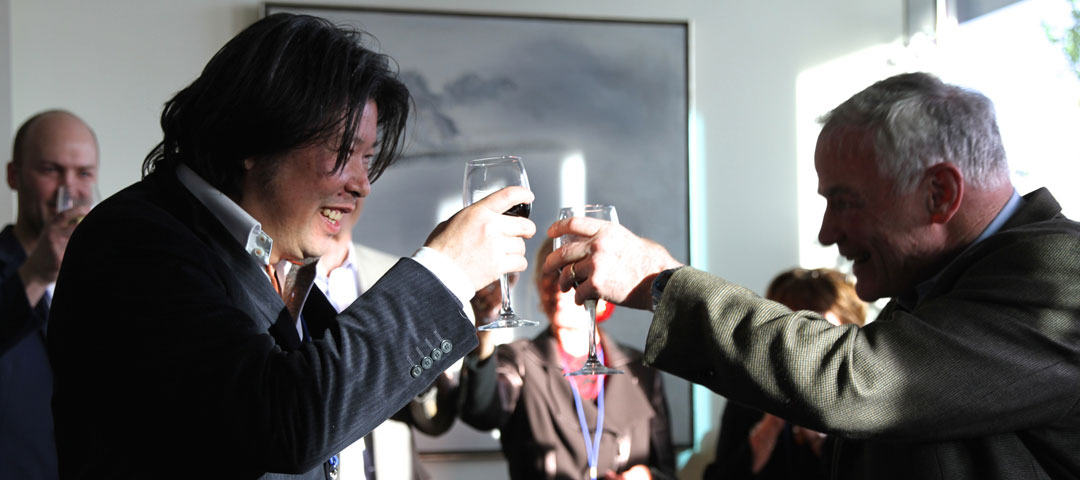Systems Biology + Systems Art
 isbscience.org/news/2014/05/01/systems-biology-systems-art/
isbscience.org/news/2014/05/01/systems-biology-systems-art/
(Photo above: Artist Xiao Dong Feng and Dr. Lee Hood raise a toast during a reception on April 28. Feng’s painting “Qing Xu” hangs in the background. The name is symbolic of someone who eschews earthly materialism and is instead a visionary who seeks a higher or more spiritual understanding.)
On April 28, Institute for Systems Biology hosted an intimate symposium on Systems Biology & Systems Art in honor of special guest Xiao Dong Feng, who is a renowned painter in China. Dr. Lee Hood, president of ISB, is an enthusiastic art collector and had met Feng during a business trip to China.
“One of my pet theses has been, since the beginning, that the concepts that have emerged from systems approaches to biology are really generalizable to almost any profession,” Hood said during his introduction.
MEDIA COVERAGE: Northwest Asian Weekly wrote about the reception. Read more…
View the gallery of photos from the symposium and reception here.
The videos below show the speakers at the symposium:
Dr. Lee Hood and artist Xiao Dong Feng
Dr. Allison Kudla, Communications Designer at Institute for Systems Biology
Dr. Edward Shanken, visiting Associate Professor at University of Washington DXARTS
Moira Scott Payne, Provost and VP for Academic Affairs, Cornish College of the Arts:






